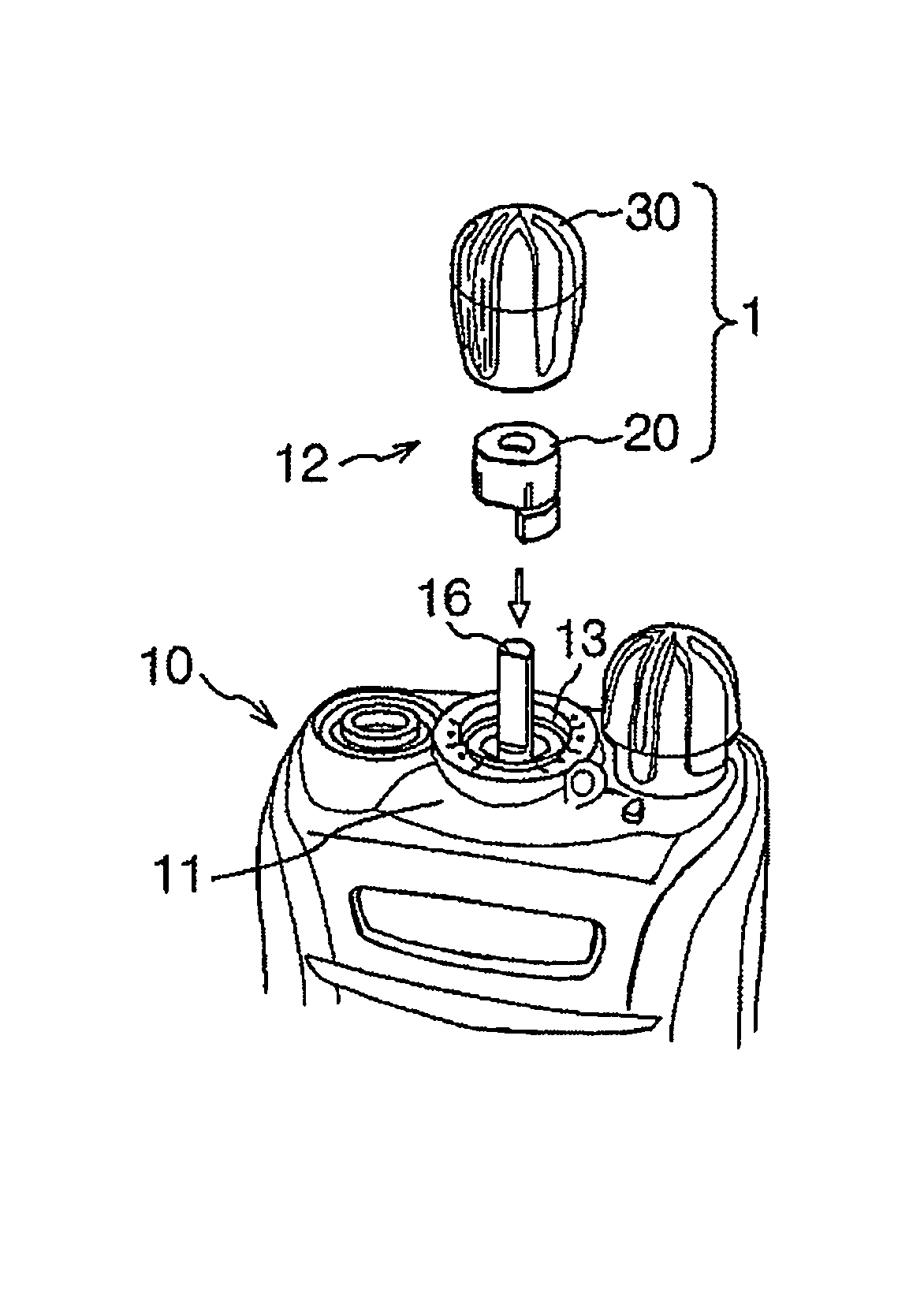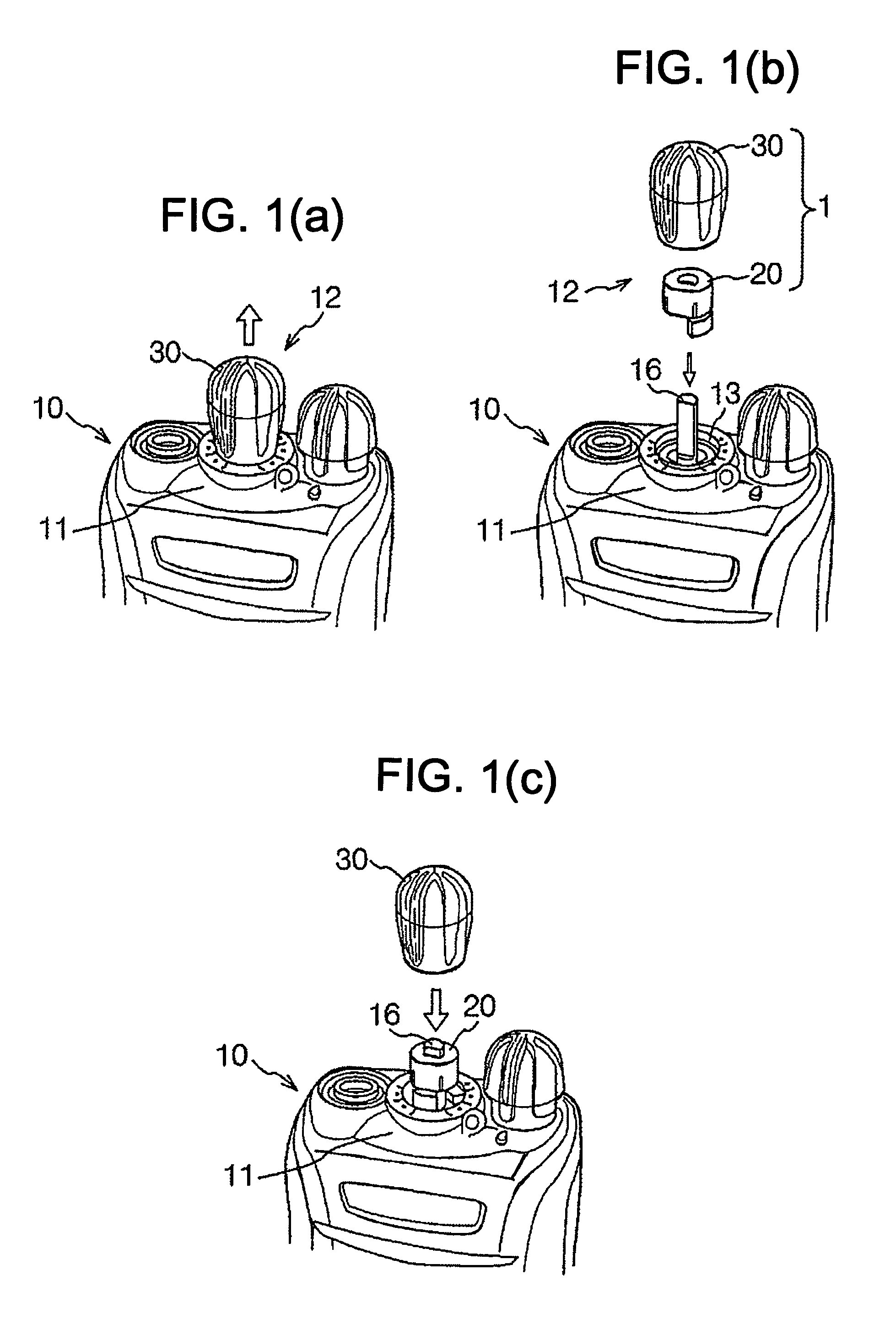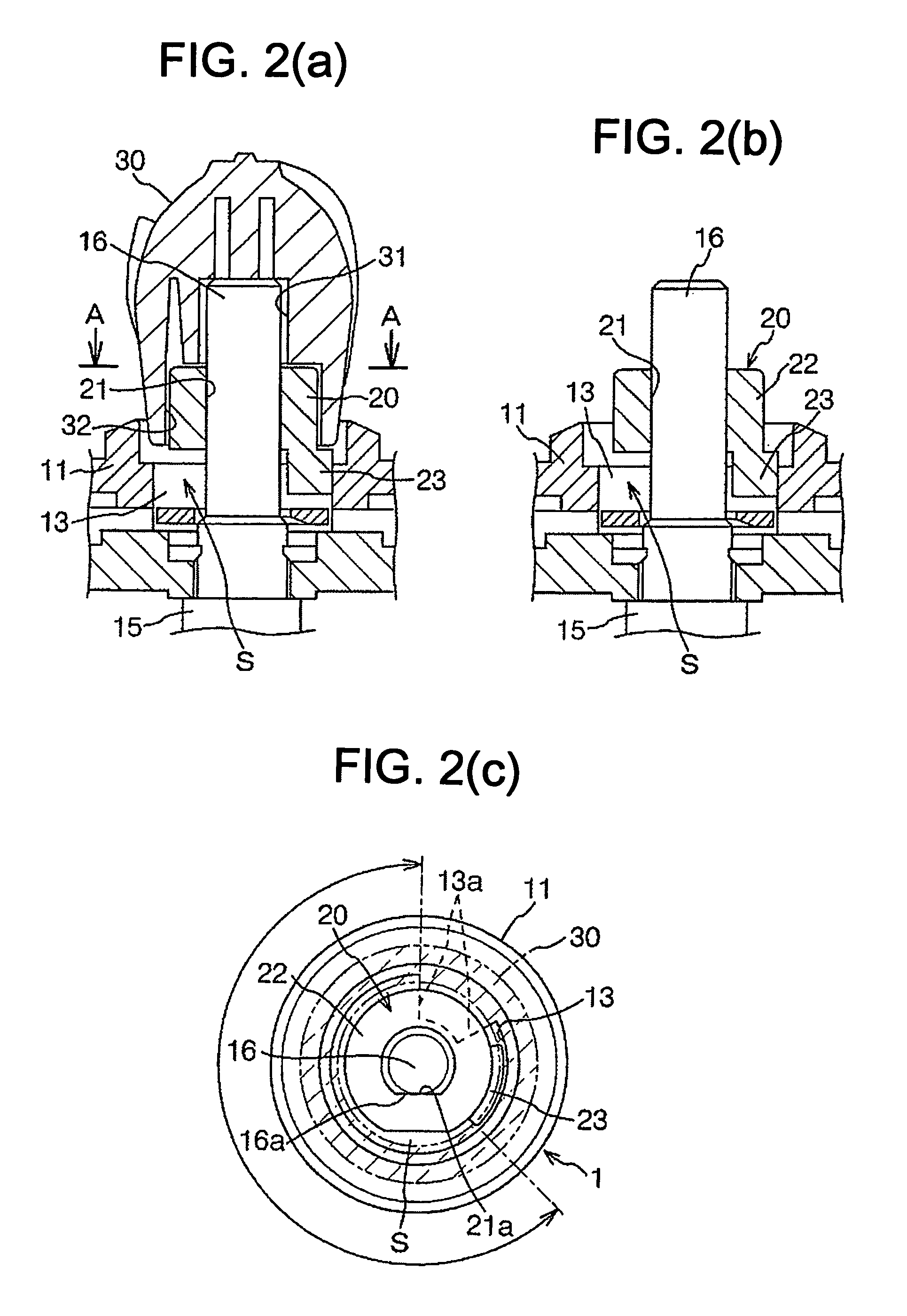Stopper structure for rotary operation member, electronic device, and channel stopper
a technology of stopper structure and operation member, which is applied in the direction of resonant circuit driving/adjusting means, resonant circuit tuning, and resonant circuit details, etc. it can solve the problems of limited rotation of the operation member, difficult for the user to correctly determine, and large impact, so as to achieve sufficient axial-direction length and radial-direction width, the effect of increasing the number of parts
- Summary
- Abstract
- Description
- Claims
- Application Information
AI Technical Summary
Benefits of technology
Problems solved by technology
Method used
Image
Examples
Embodiment Construction
[0024]With reference to FIGS. 1(a)-1(c), an embodiment of a portable radio communication device or an electronic device 10 of the instant invention is shown to have an operation part 12 [FIGS. 1(a), 1(b)] provided with a stopper structure 1. The stopper structure 1 is a means for limiting the range of rotation of a rotary operation member 30 [FIGS. 1(b), 1(c), 2(a) and 2(b)] accessible by a user and designed to operate a rotary encoder switch (a rotary electronic component) 15 [FIGS. 2(a) and 2(b)] in the radio communication device 10. The rotary encoder switch 15 is supported by the body or chassis of the radio communication device 10. The range of rotation of the rotary operation member 30 determines the number or range of radio channels usable by the radio communication device 10.
[0025]The rotary operation member 30 is included in the operation part 12 of the radio communication device 10, and is connected with the rotary encoder switch 15. The stopper structure 1 is designed to ...
PUM
 Login to View More
Login to View More Abstract
Description
Claims
Application Information
 Login to View More
Login to View More - R&D
- Intellectual Property
- Life Sciences
- Materials
- Tech Scout
- Unparalleled Data Quality
- Higher Quality Content
- 60% Fewer Hallucinations
Browse by: Latest US Patents, China's latest patents, Technical Efficacy Thesaurus, Application Domain, Technology Topic, Popular Technical Reports.
© 2025 PatSnap. All rights reserved.Legal|Privacy policy|Modern Slavery Act Transparency Statement|Sitemap|About US| Contact US: help@patsnap.com



